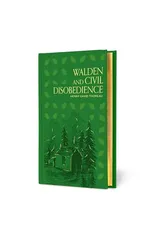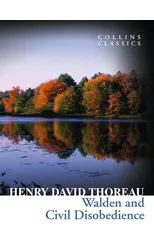"Is not January the hardest month to get through? When you have weathered that you get into the gulf-stream of winter nearer the shores of Spring." -Henry David Thoreau, Winter (1888) Winter: From the Journal of Henry D. Thoreau (1888) is the compilation of the insightful observations of nature Thoreau made from 1841-1859. Rather than following a yearly chronological organization, the journal is organized by month to give the reader an in-depth depiction of a beautiful rather than bleak winterscape in New England. Published posthumously, Thoreau's two-million-word journal, regarded by some critics as his best work, is a must-read for lovers of Walden (1854), philosophy, and nature.
Henry David Thoreau
Henry David Thoreau was an American essayist, poet, and philosopher known for his transcendentalist beliefs and writings on nature, simplicity, and civil disobedience. His most notable works include "Walden," a reflection on living a simple life in harmony with nature, and "Civil Disobedience," a call for individual resistance to unjust laws.
Thoreau's writing style is characterized by its introspective and philosophical nature, as well as its vivid descriptions of the natural world. His works have had a lasting impact on environmental literature and the development of the conservation movement. "Walden" remains his most famous work, exploring themes of self-reliance, individualism, and the importance of living deliberately. Thoreau's contributions to literature continue to inspire readers to seek a deeper connection with nature and live more intentionally.






